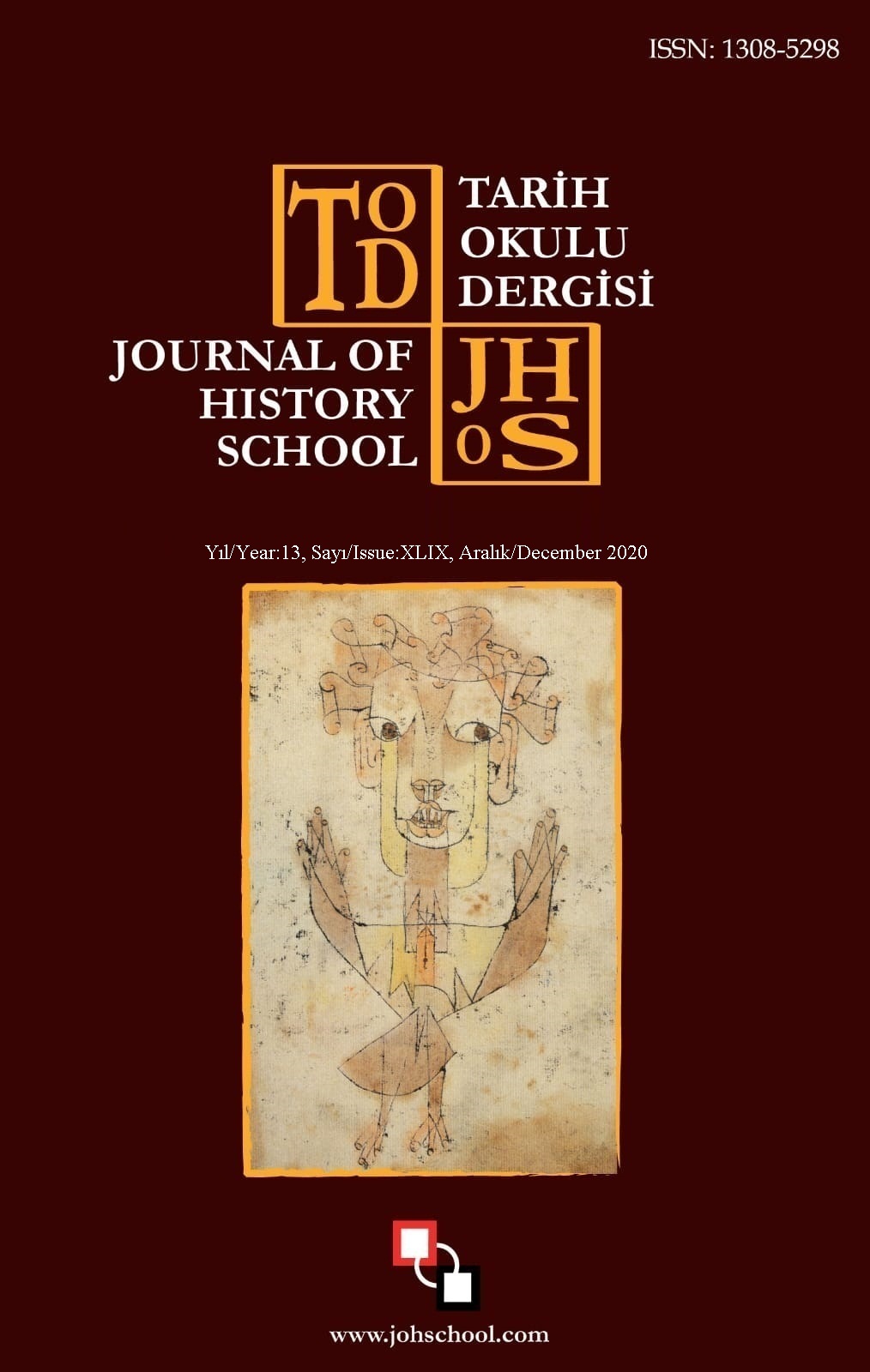YETİŞKİN EĞİTİMİ KAPSAMINDA İLKOKULLARDA AÇILAN OKUMA-YAZMA KURSLARINA YÖNELİK ÖĞRETMENLERİN ALGI VE ROLLERİNİN BELİRLENMESİ
Author :
Abstract
Bu araştırmanın amacı, yetişkin eğitimi kapsamında ilkokullarda açılan okuma-yazma kurslarına yönelik öğretmenlerin algı ve rollerini belirlemektir. Nitel özellikte olan ve fenomenolojik desene göre yürütülmüş araştırmanın çalışma grubunu, 2019-2020 eğitim-öğretim yılının birinci döneminde İstanbul ili, Esenyurt ilçesindeki 5 ilkokulda yaygın eğitim kapsamında yetişkinlere yönelik açılan okuma-yazma kurslarında eğitmen olarak görev almış 10 öğretmen oluşturmuştur. Esenyurt ilçesinin kenar mahallelerinde bulunan okullar, amaçlı örnekleme türlerinden benzeşik örnekleme ve bu okullarda açılmış olan yetişkin eğitimi okuma-yazma kurslarında görev almış öğretmenlerden gönüllü bir şekilde araştırmaya katılanlar ise ölçüt örnekleme yöntemine göre belirlenmiştir. Veriler 2019 yılının Aralık ayında ilk araştırmacı tarafından öğretmenlerle yüzyüze görüşmeler yapılarak toplanmış ve görüşmeler, telefonun ses kaydedici programı ile kaydedilmiştir. Sonrasında kaydedilen veriler Microsoft Word programı aracılığıyla yazıya dökülmüş ve içerik analizi tekniği kullanılarak araştırmacılar tarafından analiz edilmiştir. Bu süreçte her soru birbirinden bağımsız bir şekilde değerlendirilerek araştırma bulguları, öğretmenlerin görüşleri doğrultusunda ortak tema, kategori ve kodlar oluşturularak verilmiştir. Araştırma bulgularına göre öğretmenlerin çoğu yetişkin eğitimini, normal eğitim-öğretim yaşı içerisinde herhangi bir örgün eğitim kurumundan yararlanamayan kişilerin aldığı eğitim olarak tanımlamıştır. Ayrıca öğretmenlere göre kursiyerler, çoğunlukla günlük yaşamlarını kolaylaştırmak, işyeri beklentilerini karşılamak ve farkındalık sahibi olabilmek amacıyla kurslara katılmaktadırlar. Ek olarak öğretmenler genel olarak kurslarda kullanılan öğretim kaynaklarını ve ölçme değerlendirme sürecini yetersiz ancak bu kurs sürecinde kendilerini yeterli bulduklarını belirtmişlerdir. Diğer sonuçlar da öğretmenlerin genellikle kurslarda eğitici/öğretici rolüne sahip olduğu, kursların yaygınlaştırılması gerektiği, kurslarda çeşitli öğretim yöntem ve tekniklerinin kullanıldığı ve bazı önemli motivasyon uygulamaları gerçekleştirildiği şeklindedir.
Keywords
Abstract
The purpose of this research is to determine the perceptions and roles of teachers towards literacy courses opened in primary schools within the scope of adult education. The study group of the research, which is qualitative and conducted according to the phenomenological pattern, consisted of 10 teachers who took part as instructor in the literacy courses opened for adults within the scope of non-formal education in 5 primary schools in Esenyurt, district of Istanbul province in the first semester of the 2019-2020 academic year. Homogenous sampling, one of the purposeful sampling types was used to determine the schools in the suburbs of Esenyurt district and among the teachers who took part in the adult education literacy courses opened in these schools, those who voluntarily participated in the research were determined according to the criterion sampling method. The data were collected by the first researcher in December 2019 through face-to-face interviews with the teachers, and the interviews were recorded with the cell phone’s voice recorder program. Afterwards, the recorded data were written down using Microsoft Word program and analyzed by the researchers using the content analysis technique. In this process, each question was evaluated independently from each other and the research findings were given by creating common themes, categories and codes in line with the opinions of the teachers. According to the findings of the study, most of the teachers define adult education as the education received by people who cannot benefit from any formal education institution within the normal education-training age. In addition, according to teachers, trainees mostly attend courses in order to facilitate their daily lives, to meet workplace expectations and to gain awareness. Moreover, according to teachers, trainees mostly attend courses in order to facilitate their daily lives, to meet workplace expectations and to gain awareness. In addition, the teachers have stated that they generally find the teaching resources used in the courses and the assessment and evaluation process insufficient, but they find themselves sufficient in the course process. Other results are that teachers generally have the role of educator/instructor in courses, the courses should be expanded, various teaching methods and techniques are used in the courses and some important motivational practices are implemented.





